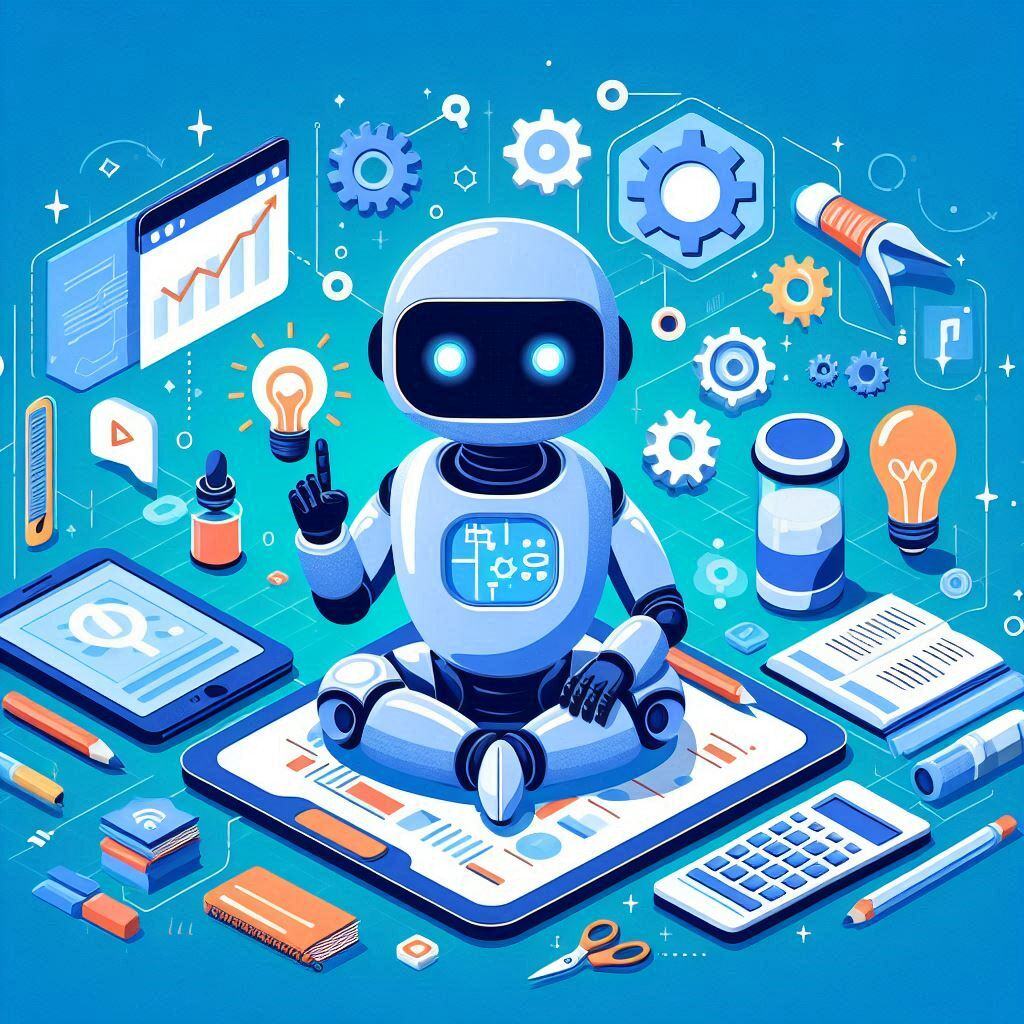Ultimate AI Learning Agents with Integrail
Artificial intelligence is moving beyond static models and into the realm of adaptive, learning agents—AI systems that continuously evolve based on...
Learn how to build custom AI agents with Integrail to automate workflows, manage tasks, and improve business efficiency step by step.
Artificial intelligence is becoming increasingly essential for businesses looking to streamline their processes. One of the most powerful ways to tap into AI is by using AI agents—smart programs designed to automate workflows and tasks. With Integrail Studio, creating and customizing these agents has never been easier.
Whether you want to automate customer support, marketing, or IT operations, AI agents can step in to handle repetitive tasks and even learn and adapt over time. This guide will introduce you to the different types of agents you can build, from simple reflex agents to more sophisticated learning agents, and how they can transform your business operations.
AI agents work similarly to human beings in some ways. They can:
There are different types of agents, each with varying levels of sophistication:
Reflex Agents: These are the most basic type. Reflex agents respond directly to inputs without retaining any memory or context. They are great for simple, one-off tasks like answering basic queries.
Stateful Agents: More advanced than reflex agents, stateful agents can remember past interactions. This allows them to provide more personalized responses or handle multi-step tasks, like an agent that recalls a customer’s preferences during multiple sessions.
Learning Agents: These are the most advanced, capable of improving over time by learning from their interactions. They can adapt to changing scenarios and acquire new knowledge, making them incredibly versatile for long-term automation.
Getting started with AI agents is easier than it seems. Here’s a quick guide to building different types of agents in Integrail Studio.
1. Reflex Agents: The Simplest Start
Reflex agents don’t need to remember past interactions, so they’re great for simple tasks like answering basic questions. Here’s how to build one:
2. Stateful Agents: Adding Memory for More Complex Tasks
If you need your agent to remember previous interactions, it’s time to build a stateful agent. These agents can keep track of information across multiple sessions, making them ideal for tasks like ongoing customer service or follow-ups.
3. Learning Agents: Building Intelligence Over Time
Learning agents take things to the next level by adapting and learning from their interactions. They can acquire new skills and knowledge without needing constant updates, making them perfect for dynamic tasks.
Now that you understand how to build different types of AI agents, let’s look at some practical ways they can be used in real-world business scenarios:
1. Automating Customer Support: Imagine a customer service agent that can remember your past interactions and use that information to provide faster, more accurate responses. By using stateful agents, businesses can enhance customer experience by offering personalized support over multiple interactions.
2. Streamlining Marketing Operations: AI agents can help create and manage marketing content, including social media posts, without needing manual input. For example, you could create a lazy Instagram poster that generates captions and images based on a simple input like “Breakfast by the Eiffel Tower.”
3. IT Management: Stateful and learning agents can be used in IT to monitor systems, diagnose issues, and even perform multi-step processes like software installations or updates, all while remembering critical information from past sessions.
One of the standout features of advanced AI agents is their ability to manage memory effectively. With short-term memory, agents can keep track of interactions within a single session, while long-term memory (powered by vector memory) helps them retrieve information across multiple sessions.
The use of Retrieval Augmented Generation (RAG) further improves the relevance and accuracy of responses by pulling the most relevant information from a database or memory. This prevents the AI from “hallucinating” and giving incorrect responses, a common issue with many models.
The potential of AI agents is limitless, especially as more users start experimenting with Integrail Studio. As users build more complex workflows and use cases, the library of available agents will grow, creating a collaborative ecosystem where businesses can share and customize agents for their needs.
If you're looking to start automating tasks or improving efficiency in your business, now is the time to explore what AI agents can do. Integrail's platform offers all the tools you need to get started, and with a little creativity, you can transform how your business operates.

Artificial intelligence is moving beyond static models and into the realm of adaptive, learning agents—AI systems that continuously evolve based on...

Artificial Intelligence (AI) is transforming industries by automating tasks, enhancing decision-making, and driving innovation. Traditionally,...

Building a custom GPT model tailored to your specific needs can greatly enhance the functionality and efficiency of your AI applications. Here’s a...
Start your journey with Integrail

Try AI Studio by Integrail FREE and start building AI applications without coding.

NEW White Paper: Discover how AI Studio accelerates your workflows